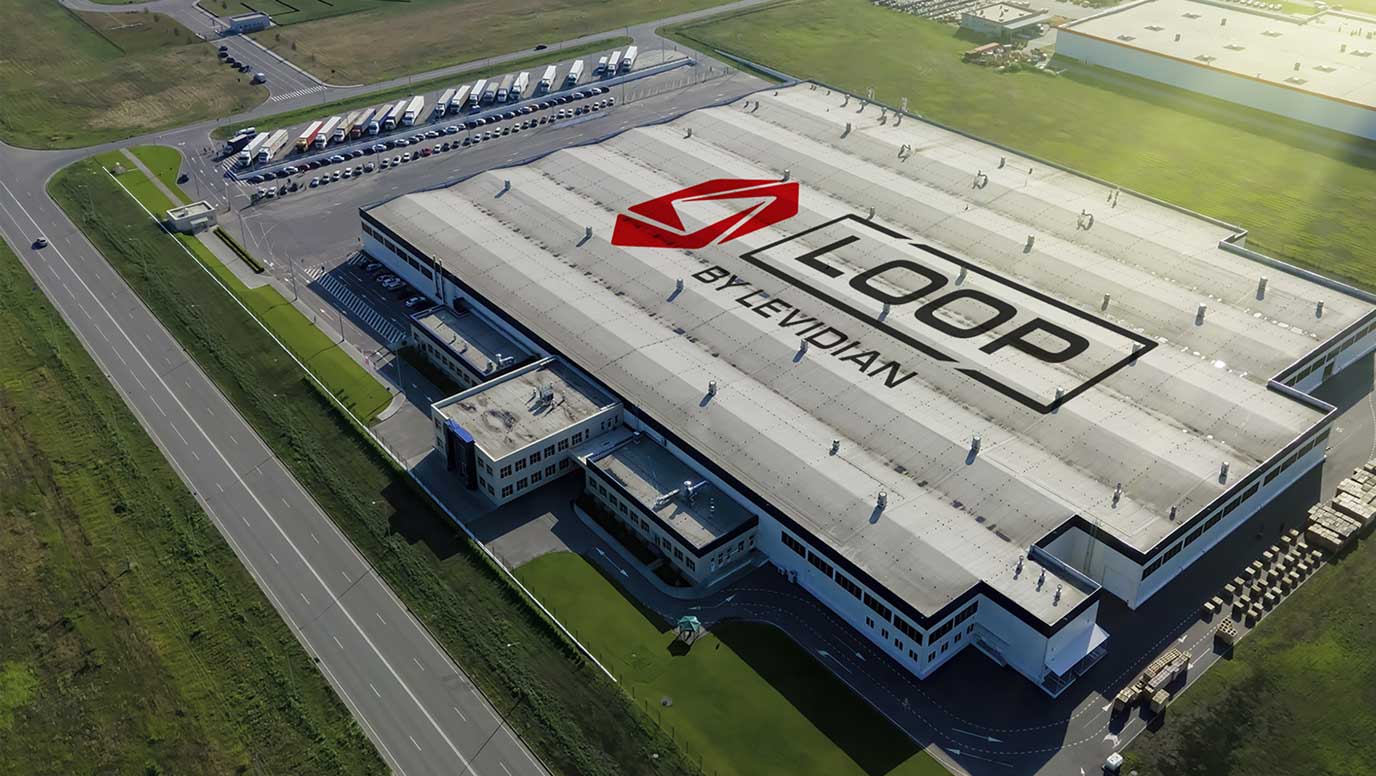Graphene goes mainstream as Levidian launches Gen2 LOOP decarbonisation tech

It has installed its first industrial scale unit at its Cambridge HQ and is working towards an annual production target by 2030 of 50,000 tonnes from a global network of devices, which will make the business one of the world's largest producers of graphene – if not the largest.
The company plans to deploy its first industrial LOOP at a customer site in partnership with clean hydrogen developer Hexla next year.
Graphene has almost endless use cases and is already being deployed in a variety of products to boost performance and drive down their carbon footprint, such as:-
- Batteries that charge 30 per cent faster and last 27 per cent longer
- Concrete – a 30 per cent reduction in carbon emissions, 35 per cent stronger
- Tyres – 23 per cent reduction in rolling resistance
Levidian’s market-leading LOOP system provides heavy emitters and hard-to-abate industries such as landfill and aluminium producers with a route to both decarbonise their processes and open up new revenue streams from the graphene and hydrogen that is produced. This unlocks decarbonisation projects that might not otherwise happen due to cost.
At the heart of LOOP is a patented ‘nozzle’ where microwave energy is applied to crack methane into its component parts, creating clean hydrogen and capturing carbon in the form of high purity graphene.
A single nozzle will be capable of producing around 15 tonnes of graphene a year – enough, for example, to transform the performance of thousands of electric vehicles with graphene-enhanced batteries and tyres so that cars can go further for longer with less impact on the environment.
John Hartley, CEO of Levidian, said: “We believe that graphene is going to play a central role in helping the world’s most carbon intensive businesses to decarbonise, solving the business case on decarbonisation projects thanks to its short return on investment, and delivering performance improvements on just about every product it touches.
“With this latest technology release, we’re setting graphene on a pathway to the mainstream, putting all the old issues of quality and scale aside to deliver unparalleled levels of graphene production that is less carbon intensive, more affordable and a higher quality than anything else on the market today.”
Levidian already has 10 LOOPs deployed or under construction globally including a pioneering biogas to hydrogen pilot at United Utilities’ Manchester Bioresources Centre, which is supported by the Department for Energy Security and Net Zero’s Hydrogen BECCS Innovation Programme.
Unlike other graphene production techniques, which typically start with environmentally harmful mining for graphite, Levidian cracks methane into hydrogen and carbon using a patented plasma process.
The low temperature, low pressure LOOP process is highly efficient, requires neither catalyst nor water, and produces no additional carbon dioxide. The carbon is captured in the form of high-quality graphene which can improve the quality of products as wide-ranging as thermoplastics, batteries and solar panels.
The company also has a dedicated team of scientists who can tailor and functionalise the material to help customers integrate graphene into their existing processes and products to drive critical improvements in performance and carbon footprint.
Chief Technology Officer Alistair Donaldson said: “We’re unlocking a future for graphene that has been 20 years in the making. Over the last year, our team has been relentlessly focused on driving forward the design of the nozzle, delivering a 20x uplift in gas processing and graphene production, and finding opportunities to scale our technology alongside growing customer demand.
“But we know it’s not enough to just make graphene. We‘re opening up this supermaterial as a viable solution to industrial decarbonisation, addressing the concerns of major global industries who have been put off in the past and giving them access to the world’s leading experts in graphene to help them secure performance improvements that will set them apart from the competition.”
• According to Thomas Schmaltz et al 2024 2D Mater, 11 022002, graphene demand is expected to reach 9,000–170,000 tons per year in 2028, with a median of 30 000 tons.

